Paul A. Raschky
The Heterogeneous Productivity Effects of Generative AI
Mar 04, 2024Abstract:We analyse the individual productivity effects of Italy's ban on ChatGPT, a generative pretrained transformer chatbot. We compile data on the daily coding output quantity and quality of over 36,000 GitHub users in Italy and other European countries and combine these data with the sudden announcement of the ban in a difference-in-differences framework. Among the affected users in Italy, we find a short-term increase in output quantity and quality for less experienced users and a decrease in productivity on more routine tasks for experienced users.
The Unintended Consequences of Censoring Digital Technology -- Evidence from Italy's ChatGPT Ban
Apr 18, 2023Abstract:We analyse the effects of the ban of ChatGPT, a generative pre-trained transformer chatbot, on individual productivity. We first compile data on the hourly coding output of over 8,000 professional GitHub users in Italy and other European countries to analyse the impact of the ban on individual productivity. Combining the high-frequency data with the sudden announcement of the ban in a difference-in-differences framework, we find that the output of Italian developers decreased by around 50% in the first two business days after the ban and recovered after that. Applying a synthetic control approach to daily Google search and Tor usage data shows that the ban led to a significant increase in the use of censorship bypassing tools. Our findings show that users swiftly implement strategies to bypass Internet restrictions but this adaptation activity creates short-term disruptions and hampers productivity.
Predicting Political Ideology from Digital Footprints
Jun 01, 2022


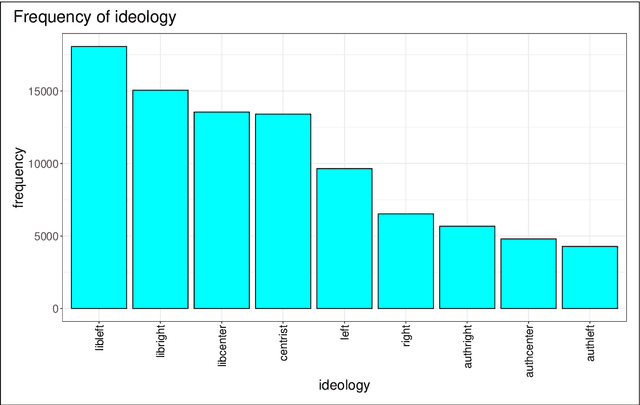
Abstract:This paper proposes a new method to predict individual political ideology from digital footprints on one of the world's largest online discussion forum. We compiled a unique data set from the online discussion forum reddit that contains information on the political ideology of around 91,000 users as well as records of their comment frequency and the comments' text corpus in over 190,000 different subforums of interest. Applying a set of statistical learning approaches, we show that information about activity in non-political discussion forums alone, can very accurately predict a user's political ideology. Depending on the model, we are able to predict the economic dimension of ideology with an accuracy of up to 90.63% and the social dimension with and accuracy of up to 82.02%. In comparison, using the textual features from actual comments does not improve predictive accuracy. Our paper highlights the importance of revealed digital behaviour to complement stated preferences from digital communication when analysing human preferences and behaviour using online data.
Estimating Sleep & Work Hours from Alternative Data by Segmented Functional Classification Analysis (SFCA)
Oct 16, 2020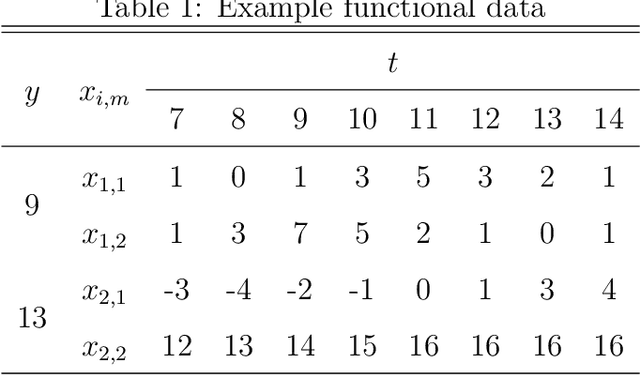
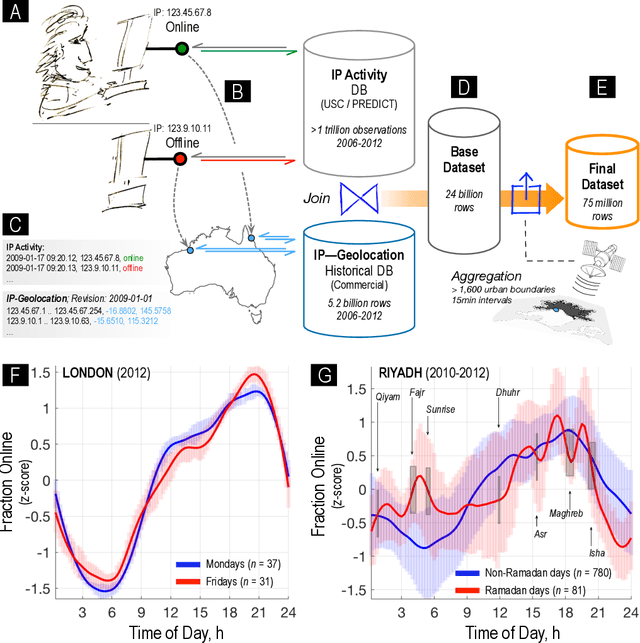
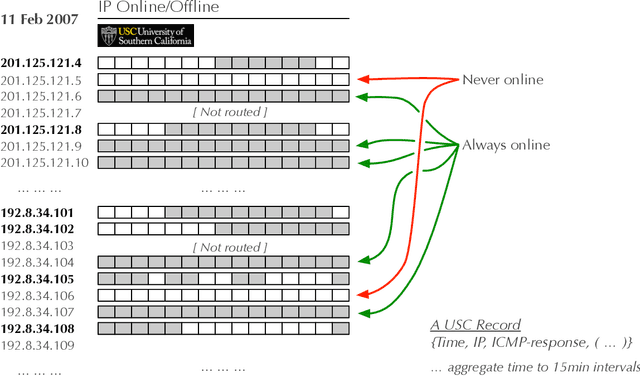
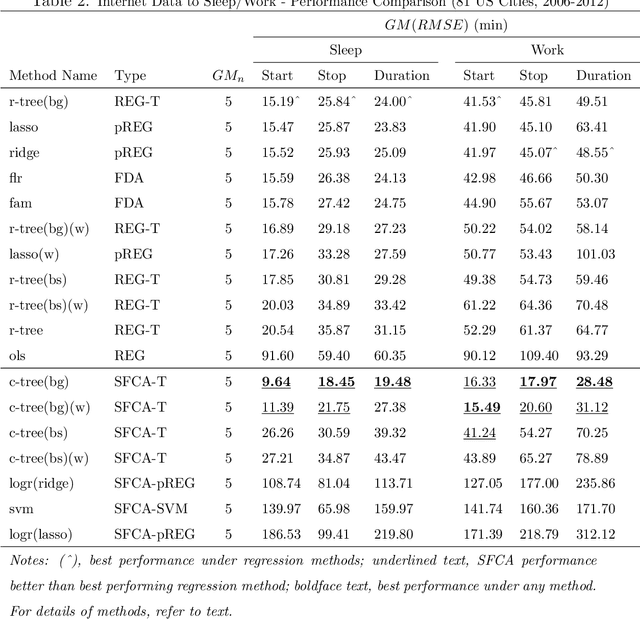
Abstract:Alternative data is increasingly adapted to predict human and economic behaviour. This paper introduces a new type of alternative data by re-conceptualising the internet as a data-driven insights platform at global scale. Using data from a unique internet activity and location dataset drawn from over 1.5 trillion observations of end-user internet connections, we construct a functional dataset covering over 1,600 cities during a 7 year period with temporal resolution of just 15min. To predict accurate temporal patterns of sleep and work activity from this data-set, we develop a new technique, Segmented Functional Classification Analysis (SFCA), and compare its performance to a wide array of linear, functional, and classification methods. To confirm the wider applicability of SFCA, in a second application we predict sleep and work activity using SFCA from US city-wide electricity demand functional data. Across both problems, SFCA is shown to out-perform current methods.
 Add to Chrome
Add to Chrome Add to Firefox
Add to Firefox Add to Edge
Add to Edge